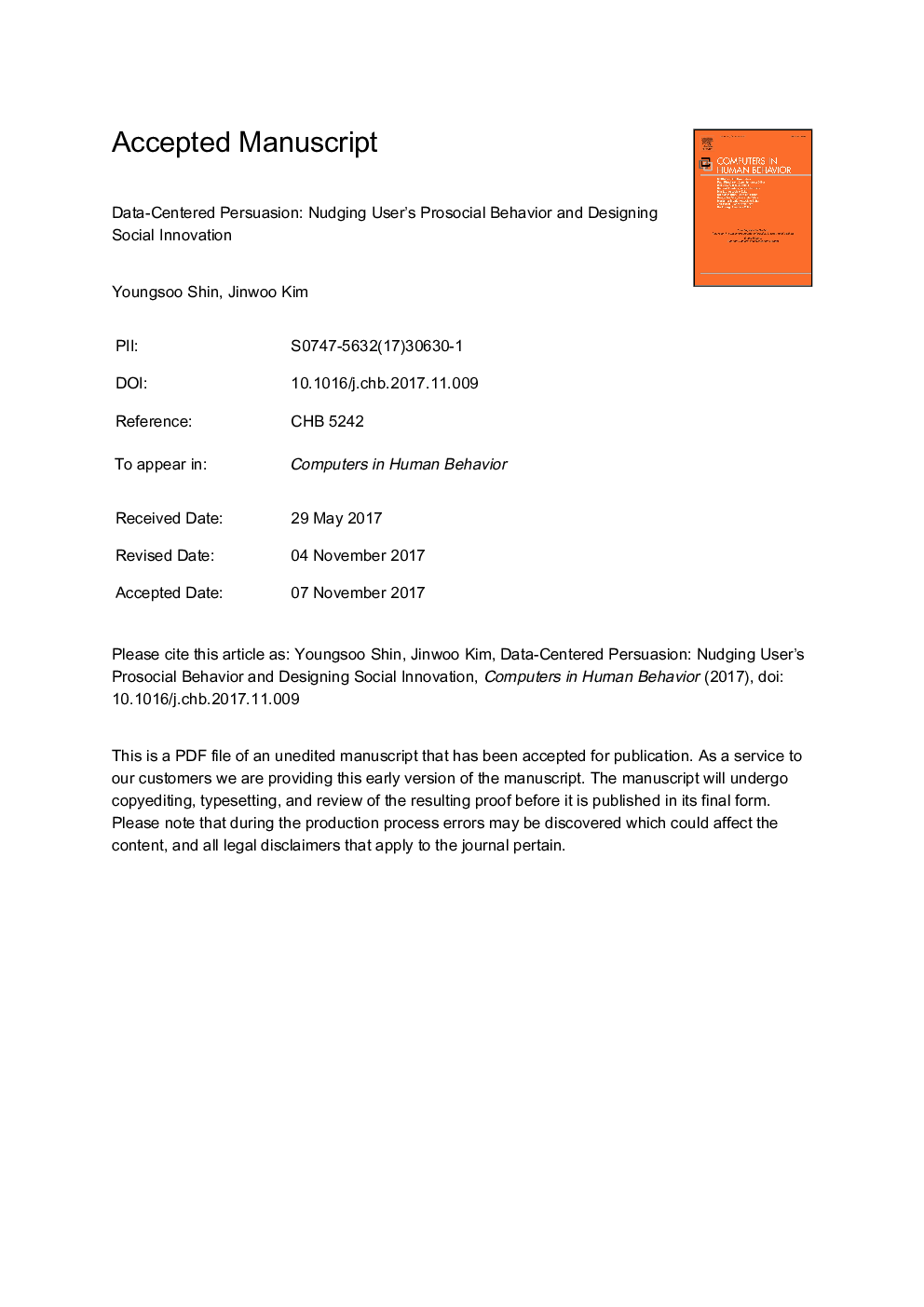| Article ID | Journal | Published Year | Pages | File Type |
|---|---|---|---|---|
| 6836220 | Computers in Human Behavior | 2018 | 38 Pages |
Abstract
By employing individuals' behavioral data collected from routinely used devices, a more effective 'nudging' toward changes in individuals' attitudes and behavior can be implemented. To examine the persuasive effect on inducing prosocial behaviors, two types of system concepts were designed, namely shared value systems. We manipulated the usage context of these systems and tested the effects with two independent variables: the status of the system agent and the valence of the agent's feedback. As a result, this study revealed that users' satisfaction and intention for prosocial behavior increased after they experienced the shared value system based on the concept of self-preferential value. Interaction effects were also found between the status of the system agent and the valence of the agent's feedback.
Keywords
Related Topics
Physical Sciences and Engineering
Computer Science
Computer Science Applications
Authors
Youngsoo Shin, Jinwoo Kim,
